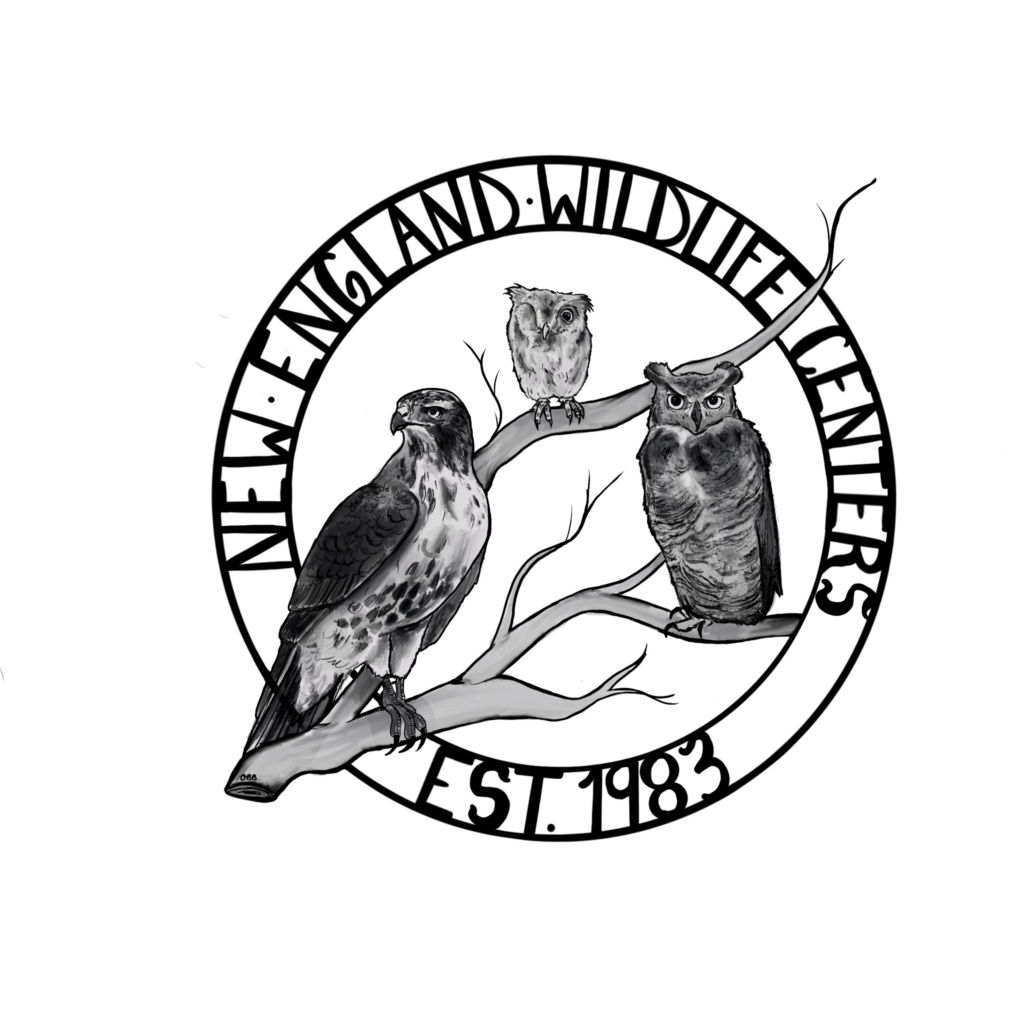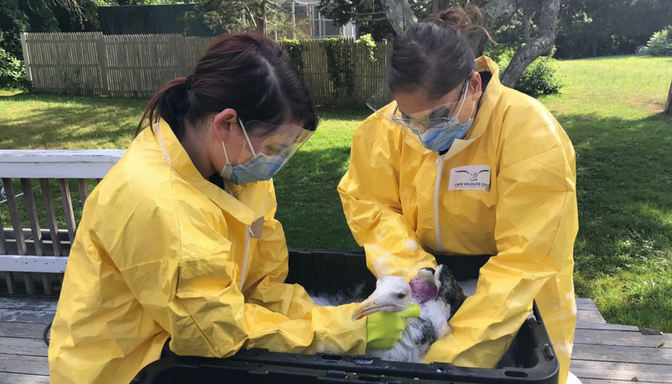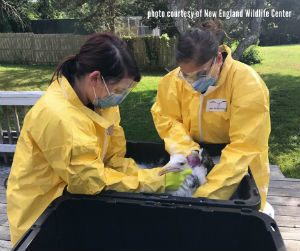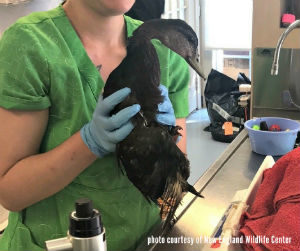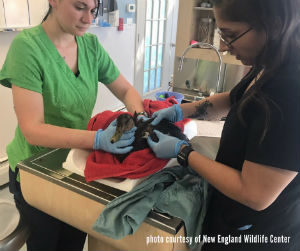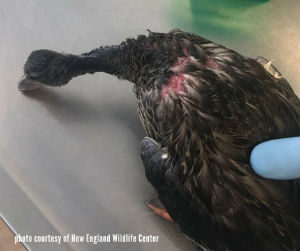14 waterfowl currently receiving emergency care at NEWC affiliate Cape Wildlife Center
UPDATE 8/22/17: Birds continue to receive supportive care from our veterinarians at NEWC’s wildlife hospital and affiliate Cape Wildlife Center. Sadly, four of the birds did not survive. The remaining birds continue to receive medicines to prevent them from absorbing toxins from the diesel spill in their GI tract. They also are spritzed with water at regular intervals and spend time in the pool to swim each day to restore their water-proofing.
UPDATE 8/29/17: The ducks at NEWC’s wildlife hospital in South Weymouth have returned to our affiliate Cape Wildlife Center for further rehabilitation. Cape Wildlife Center has a salt water pool in which the ducks will receive daily swim time to complete their recovery. The current plan is to return them to the wild in the next couple of weeks.
New England Wildlife Center (NEWC) veterinarians are responding to a wildlife emergency caused by a diesel spill in New Bedford Harbor. Waterfowl suffering the effects of toxic petroleum exposure began arriving at NEWC affiliate Cape Wildlife Center in Barnstable yesterday for urgent care.
Dr. Priya Patel, the NEWC veterinarian leading the emergency response in Barnstable, says the US Coast Guard and the Department of Fish and Wildlife have brought 14 waterfowl, primarily ducks, in for medical assistance.
“The exposure to petroleum has caused severe irritation of the skin and broken the water-proofing,” she explains.
As the birds arrive, they receive full veterinary exams to determine the extent of the injuries and their feathers are tested to determine the right concentration of soap and water to remove the fuel oil.
NEWC is transporting some of the birds to its wildlife hospital in South Weymouth to provide on-going intensive care.
We will continue to keep you updated on how the birds are recovering.
NEWC Veterinarians Helping Wildlife
The images below show NEWC veterinarians working to help the ducks and seabirds that arrived at Cape Wildlife Center yesterday.
See additional media coverage in The Cape Cod Times.
How Can You Support Wildlife Emergency Response?
NEWC is only able to response to wildlife emergencies with the support of caring people like you!
We do not receive any federal or state funding to make sure emergency wildlife veterinary care is available for animals like the ducks and seabirds impacted by the fuel spill.
All donations go directly to the care of wildlife.
We are also in need of Pedialyte and dish soap at our wildlife hospital in Weymouth and at our affiliate Cape Cod Wildlife Center. Follow this link to our Amazon wish list to make an in-kind donation: NEWC’s Amazon wishlist
